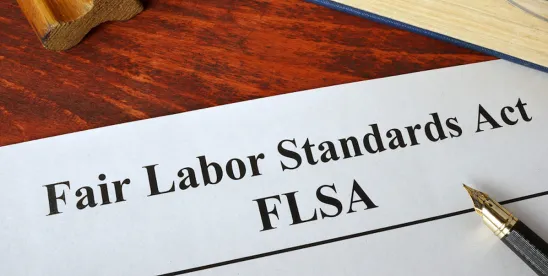Education
Understanding Compensable Travel Time Under Labor Law

As employees return to work following the summer break, many find themselves traveling to various job sites for meetings and other engagements. A critical question arises for employers: which travel time qualifies as compensable work time? The answer is nuanced and depends on several factors outlined under the Fair Labor Standards Act (FLSA).
The FLSA mandates that employees receive at least the federal minimum wage and time-and-a-half for hours worked over 40 in a week, unless exempt. It also specifies what counts as “compensable” time—essentially, time considered actual work. According to the FLSA, only time that is “integral and indispensable” to an employee’s primary activities is compensable.
Factors Defining Compensable Travel Time
Travel time is generally not compensable when it involves the standard commute from home to work. However, there are exceptions where home-to-work travel can become compensable. For instance, if an employee performs work tasks while traveling, such as receiving instructions or planning, that travel time may qualify for compensation.
Several key factors can influence whether travel time is compensable:
1. **Intertwining Work Activities**: If an employee engages in work-related activities during travel, that time may be compensable.
2. **Pre-Travel Work Requirements**: If an employee must perform minimal work tasks before travel, such as loading equipment or attending a briefing, this can start the clock on compensable time.
3. **Extended Travel**: If travel from home to a work location takes significantly longer than usual, it may be compensable.
4. **Overnight Travel**: For overnight trips, travel time is compensable if it overlaps with the employee’s normal working hours, even if it occurs on a weekend.
Understanding Different Scenarios
To clarify how these factors apply, consider the following scenarios:
**Scenario 1**: An employee carpools to job sites in a personal vehicle, driving for 30 to 45 minutes without performing work during the drive. Since this is typical commuting time and the employee is not engaged in work activities, this travel time is not compensable.
**Scenario 2**: The same employee uses a company vehicle for the commute. The use of a company vehicle does not change the nature of the travel; it remains non-compensable since no work is performed during the trip.
**Scenario 3**: An employee first reports to headquarters to receive daily instructions before heading to a work site. If the travel to headquarters is integral to her work, the time spent traveling to the work site afterward is likely compensable.
**Scenario 4**: Employees traveling to another city for an overnight job engage in work activities during their stay. The time spent traveling to and from this location is compensable if it occurs during their normal working hours, regardless of whether those hours fall on a working day.
Implications for Employers
Employers must navigate these guidelines carefully to ensure compliance with the FLSA. If employers agree to pay for travel time that is not legally required, they may be liable for that compensation, excluding standard commute times. It is advisable for employers to review their travel time policies in consultation with labor and employment attorneys to determine whether adjustments are necessary.
Employers should also be aware that state wage-and-hour laws may differ from federal regulations, adding another layer of complexity. It is essential to seek legal advice to ensure compliance with all applicable laws.
In summary, understanding what constitutes compensable travel time under the FLSA is critical for both employees and employers. With the return of travel-related work in the fall, clarity on these guidelines can help foster fair compensation practices and mitigate potential legal issues.
-

 Technology5 months ago
Technology5 months agoDiscover the Top 10 Calorie Counting Apps of 2025
-

 Technology3 weeks ago
Technology3 weeks agoOpenAI to Implement Age Verification for ChatGPT by December 2025
-

 Health3 months ago
Health3 months agoBella Hadid Shares Health Update After Treatment for Lyme Disease
-

 Health4 months ago
Health4 months agoAnalysts Project Stronger Growth for Apple’s iPhone 17 Lineup
-

 Health4 months ago
Health4 months agoErin Bates Shares Recovery Update Following Sepsis Complications
-

 Technology5 months ago
Technology5 months agoDiscover How to Reverse Image Search Using ChatGPT Effortlessly
-

 Technology3 months ago
Technology3 months agoElectric Moto Influencer Surronster Arrested in Tijuana
-

 Technology5 months ago
Technology5 months agoMeta Initiates $60B AI Data Center Expansion, Starting in Ohio
-

 Technology2 months ago
Technology2 months agoDiscover 2025’s Top GPUs for Exceptional 4K Gaming Performance
-

 Technology5 months ago
Technology5 months agoRecovering a Suspended TikTok Account: A Step-by-Step Guide
-

 Health5 months ago
Health5 months agoTested: Rab Firewall Mountain Jacket Survives Harsh Conditions
-

 Lifestyle5 months ago
Lifestyle5 months agoBelton Family Reunites After Daughter Survives Hill Country Floods





















